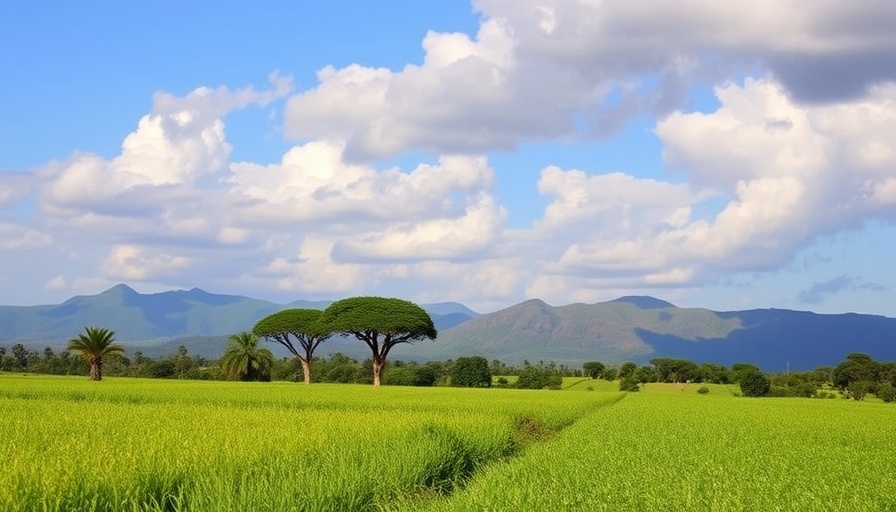
Leveraging Green Finance: CRDB’s Bold Leap into Global Markets
Tanzania has made significant strides in expanding its economic footprint internationally, particularly with the CRDB Bank’s recent green bond listing on the London Stock Exchange. This move not only cements Tanzania's reputation as a growing hub for sustainable finance in Africa, but it also highlights the bank’s strategic shift toward addressing environmental concerns while achieving financial capital. Investors are increasingly considering environmental, social, and governance (ESG) criteria, and CRDB’s pioneering step can potentially attract a wave of green investors seeking new opportunities in emerging markets.
The Implications of This Listing for African Economies
The global trend toward sustainability and responsible investing presents both opportunities and challenges for African economies. The listing of CRDB’s green bond could serve as a beacon for other financial institutions across the continent. It demonstrates a commitment to harnessing capital for green projects, while also addressing pressing environmental issues such as climate change—an undeniably urgent matter for Africa’s future.
A Broader Conversation on African Integration into Global Markets
This landmark event ties into broader themes of Africa's integration into global financial systems. As more African nations follow suit, listing green bonds and engaging in sustainable finance practices, the continent could better position itself within global markets, influencing the trajectory of international trade and foreign investments in Africa. Increased participation in such initiatives aligns with global sustainability goals, paving the way for enhanced cooperation with international bodies and reinforcing Africa’s presence in critical conversations on global governance.
Future Directions: What Lies Ahead
Looking forward, there is a growing need for African governments and institutions to nurture innovative financing strategies that support sustainable development. Maintaining momentum from the CRDB listing requires a concerted effort from policymakers to enhance regulatory frameworks and create supportive environments for green investment. Furthermore, fostering partnerships between the private and public sectors will be crucial as other African nations look to replicate Tanzania's success in green financing.
The CRDB Bank’s journey marks a pivotal shift not just for Tanzania but for the entire African continent. As we witness increasing diplomatic relations and economic collaboration, it’s essential for stakeholders across sectors—policymakers, think tanks, investors, and academics—to engage in dialogue about the potential benefits and implications of a sustainable economic strategy. This forward-thinking approach could reshape Africa's role on the global stage, addressing both economic needs and environmental responsibilities.
 Add Row
Add Row  Add
Add 


 Add Row
Add Row  Add
Add 

Write A Comment